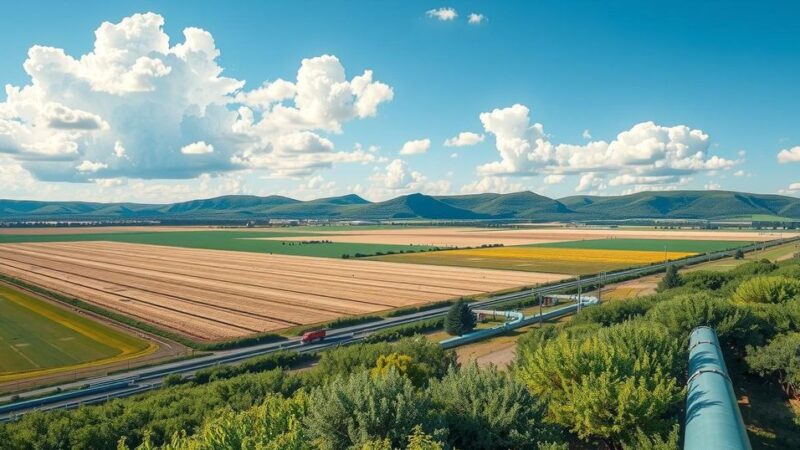Argentina is experiencing an oil boom that is yielding record production levels, indicating potential for economic recovery despite ongoing social challenges. Critics highlight issues surrounding environmental impact, benefit distribution, and the abandonment of climate goals. The prominent Neuquén Basin has driven this expansion, but concerns about fracking practices and local poverty levels remain prevalent. Current governmental policies are shifting away from renewable energy supports, which may complicate future progress.
Argentina is witnessing a significant oil boom, with its oil production reportedly reaching record highs over the past three years. This development presents a hopeful sign for an economy that has struggled deeply, facing a prolonged crisis characterized by declining per capita GDP and rising poverty. However, such advancements raise critical questions regarding benefit distribution, energy accessibility for the population, and the expansion’s environmental and social consequences.
The Neuquén Basin is at the forefront of this oil activity surge. Academics and environmental advocates have described this expansion as excessively aggressive. Recent findings indicate that 3,300 oil wells have been drilled in agricultural regions, with plans for more than 500 additional wells in 2025. The Vaca Muerta geological formation, identified as one of the world’s largest reserves of shale gas and oil, is finally showing potential benefits but not without significant impacts on agriculture and the environment.
Researcher Agustín González has expressed concern regarding the practices involved in fracking, particularly its violent nature and excessive water usage, which endanger nearby agricultural areas and communities. He emphasizes that the development of fracking should be balanced with the preservation of natural resources and social equity. Furthermore, a recent study advocates for the establishment of strong regulatory frameworks to prevent irreversible damage to ecosystems and local populations.
Under the administration of President Javier Milei, significant environmental policies have been undermined. The Ministry of Environment has been relegated, and previous initiatives supporting renewable energy have been dismantled. The focus has shifted entirely toward fossil fuels, which raises doubts about the country’s commitments to renewable energy goals set in legislation from 2015.
Despite these challenges, Argentina has reported a positive energy trade balance for the first time in over a decade, thanks largely to the expansion of the Vaca Muerta formation which represents nearly half of national oil and gas production. With overall oil production growing and projections indicating potential annual oil exports of US$30 billion by 2030, there is a mixture of optimism and caution.
However, concerns persist regarding the benefits of this boom translating to improved well-being for the populace, especially in impoverished regions such as Neuquén. The local economic benefits seem insufficient to address social needs, and the economic strain can be seen in declining domestic demand for oil products. Consequently, the Milei administration’s policies may lead to increased local prices and a failure to improve living conditions, despite vast investments in the oil sector.
In conclusion, while Argentina’s oil boom presents opportunities for economic recovery and export growth, it simultaneously poses significant challenges regarding environmental impacts, social equity, and the distribution of economic benefits. The ongoing prioritization of fossil fuels over renewable energy under the current administration raises concerns about the country’s long-term sustainability. Collaborative efforts and robust regulatory frameworks will be essential to ensure balanced development that secures both economic advancement and the well-being of local communities.
Original Source: www.globalissues.org






